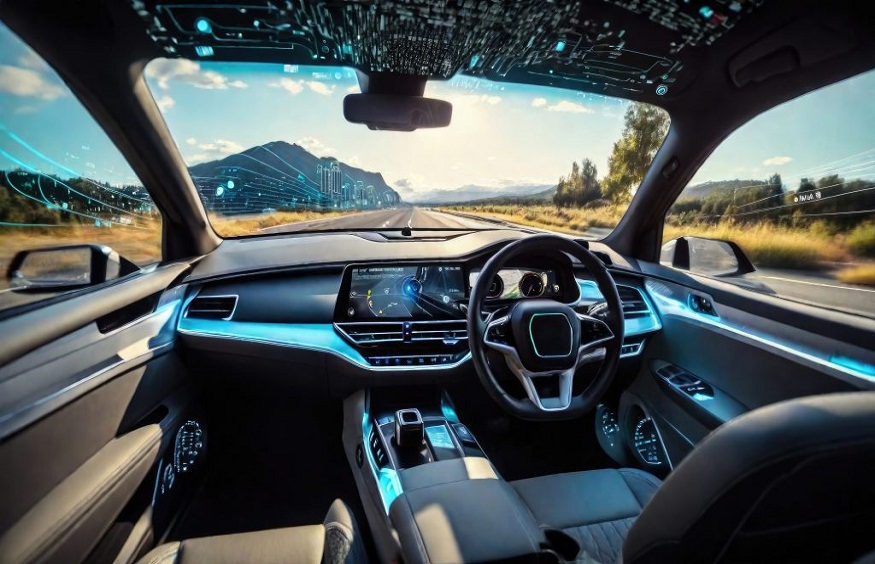In today’s rapidly advancing automotive world, technology plays a pivotal role in enhancing vehicle safety and performance. Among the various innovations, Advanced Driver Assistance Systems (ADAS) have emerged as a critical feature in modern vehicles. To maintain the accuracy and effectiveness of these systems, ADAS calibration is essential. Here’s why calibrating your ADAS is crucial for vehicle safety and optimal performance.
What is ADAS and Why is it Important?
ADAS refers to a set of technologies integrated into vehicles to assist drivers and improve safety. These systems include features like adaptive cruise control, lane departure warning, automatic emergency braking, and blind-spot monitoring. By providing automated support, ADAS helps reduce the risk of accidents and makes driving more comfortable.
However, these systems rely on a network of sensors, cameras, and radar units that must be precisely aligned. Even a minor misalignment can compromise the functionality of these systems, potentially leading to safety hazards. This is where ADAS calibration comes into play.
The Importance of ADAS Calibration
When a vehicle undergoes repairs or replacements, such as a windshield replacement, collision repair, or any maintenance that impacts the ADAS components, calibration is essential to ensure the system operates as intended. Here’s why:
1. Maintains Safety Standards
Accurate calibration ensures that ADAS features function correctly. Misaligned sensors or cameras can lead to delayed reactions or incorrect readings, posing significant safety risks. For example, if the lane-keeping assist feature isn’t calibrated properly, it may not detect lane markings accurately, potentially leading to unintentional drifting.
2. Enhances System Accuracy
ADAS calibration guarantees that the vehicle’s sensors and cameras are accurately aligned and communicate effectively. This alignment is crucial for features like adaptive cruise control, which relies on precise data to maintain safe distances from other vehicles.
3. Prevents Costly Mistakes
Failing to calibrate ADAS can lead to errors that may result in costly repairs or even accidents. Ensuring a proper calibration minimizes the chances of false warnings or system failures that could endanger both the driver and other road users.
4. Supports Insurance and Liability Requirements
Proper calibration can also be a requirement for insurance claims. If a vehicle’s ADAS system fails to function correctly due to poor calibration and results in an accident, insurance companies may dispute claims based on maintenance negligence. Regular calibration ensures you’re covered in the event of an incident.
When is ADAS Calibration Needed?
Calibration is needed under several circumstances:
- Windshield Replacement: If your vehicle’s windshield is replaced, the cameras and sensors mounted on it may need recalibration to ensure they continue to function as designed. For more professional help on windscreen services, check out windshield replacement Ocala FL.
- Collision Repair: Any impact that affects the vehicle’s body or frame can misalign ADAS components.
- Suspension Work: Changes in a vehicle’s suspension can affect sensor alignment, necessitating calibration.
The Calibration Process
ADAS calibration can be either static or dynamic:
- Static Calibration: This is performed in a controlled environment, typically a workshop, where specific targets and equipment are used to calibrate sensors.
- Dynamic Calibration: This involves driving the vehicle on the road under specific conditions, allowing the sensors to recalibrate based on real-world data.
Both types of calibration require specialized tools and technical expertise to ensure the ADAS is fully functional and accurate.
Conclusion
ADAS calibration is not just a technical procedure—it’s an investment in your safety and the safety of others on the road. Ensuring that these systems are correctly calibrated maintains their effectiveness and helps avoid potential risks. If your vehicle requires ADAS calibration, be sure to consult with a professional who understands the complexities of these systems and has the tools to perform the calibration accurately.
Staying proactive with your ADAS maintenance helps ensure that your modern vehicle continues to provide the protection and assistance it was designed for.


